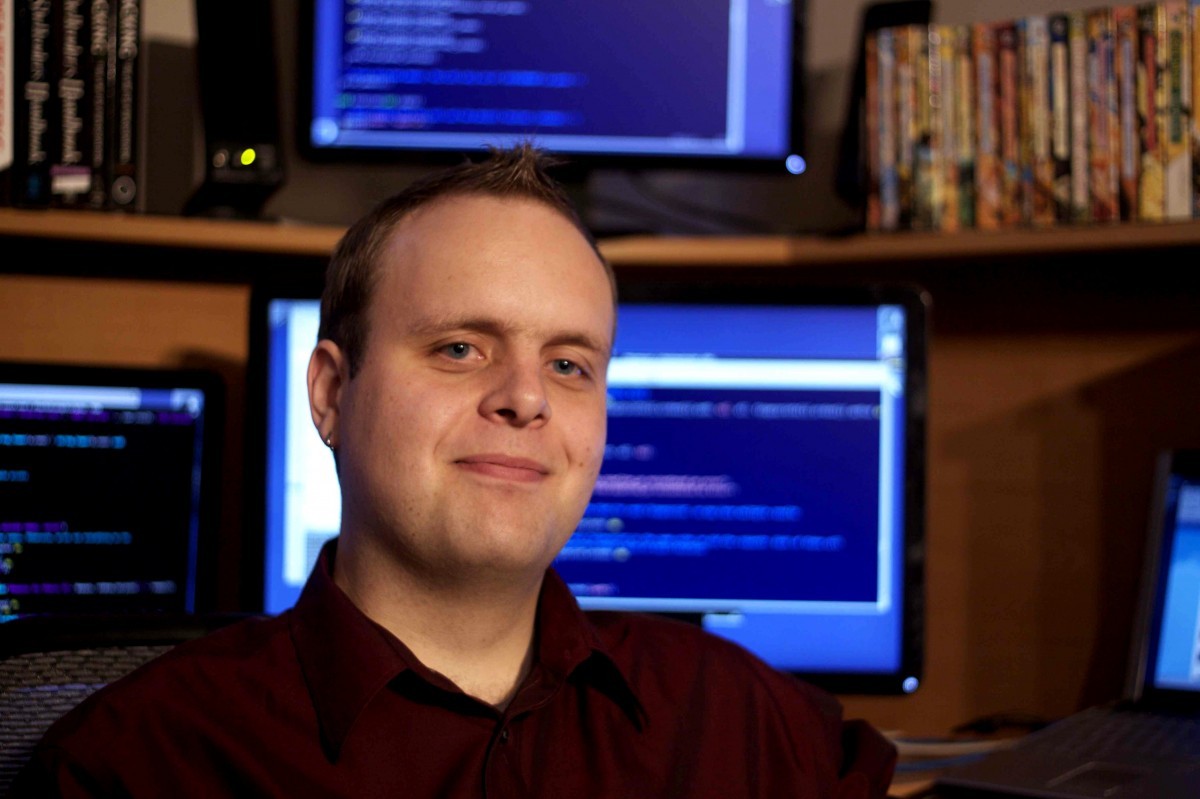
So what can you do with a science degree?
Meet science grad Ron Bowes, Computer Science major [B.C.Sc.(Hons)06], Information Security Engineer, Google.
Attending the University of Manitoba was about more than just studying computer science for Ron Bowes. His life changed when, thanks to the department’s co-op program, he nabbed two internships with the government of Manitoba’s Information Protection Centre. For eight months, he worked as security analyst, his first such job.
“I got to meet a whole bunch of people and those people are the reason I got the jobs I have,” says Bowes, who now works as an information security engineer at Google in Seattle, Wa. “I never would have had that opportunity if it wasn’t for the university. I probably wouldn’t have realized I liked security, or it would have taken a lot longer.”
Bowes admits there are indeed programming savants and tech entrepreneurs who flourish without the degree—skilled young hackers who get paid to look for holes in software or gifted teens who sell off the app they’ve developed for millions of dollars.
Bowes, however, feels his time at the U of M was well spent. He enjoyed his department’s co-op program, meeting new people and learning about everything from algorithms in computer science to Roman history in one of his electives.
“When I finished high school, I was fairly young and naïve,” he says. “University is a time where you grow up a lot more.”
Today, Bowes ensure products made by Google do not compromise the security of any of the company’s codes and programs. He also helps manage the company’s bug bounty project, which pays money to researchers who are able to pinpoint technical vulnerabilities in services like Google Maps or Google subsidiaries like YouTube.
“I enjoy how every day is kind of different,” says Bowes. “My company probably makes thousands of products and we touch all of them at some point.”
Bowes became interested in computers while growing up in Winnipeg and writing his own video games. He was fascinated with a community of online gamers who knew programing secrets that allowed them to alter the games. Bowes eventually got to know these gamers and took it upon himself to learn about what they were doing; for him, he considered it a challenge.
“I’d never ask them for help directly; I’d always look at what they did and think: how can I do the same thing myself?” says Bowes. “Security is all about digging deep and learning how to use computers for things they weren’t intended for. That’s exactly what this was: making games do things they weren’t supposed to do.”
Despite this early predilection, he still took courses on philosophy and physics before deciding to focus on computer science. After graduating in 2006, he spent four more years with the Manitoban government before working as a consultant and moving to the West Coast to join Google.
In 2010, Bowes made headlines after he harvested 171 million Facebook account names and links and posted them in a searchable format online. This had never been done before, and some people incorrectly accused Bowes of hacking into the accounts to obtain the information.
“It kind of blew out of control,” says Bowes. “I got lots of phone calls, lots of reporters, lots of news stories and lots of Twitter followers.”
What several media outlets didn’t realize was that all of the information Bowes had compiled was publicly available on Facebook. They also failed to mention that at the time, Bowes was participating in a security competition held every year at the Def Con hacking conference in Las Vegas.
Bowes is critical of how most companies have put the onus on individual users to protect and secure information on their computers. He says the vast majority of us do not have the knowledge, time or desire to, for instance, ensure a password is sufficiently difficult to crack. (He uses a digital password generator that he keeps on his key chain.) Instead, he says companies with online businesses should be able to ensure their customers can safely use their services without having to worry about losing control of their personal information.
“That’s something the industry has failed at in the past,” says Bowes. “Passwords are such a broken metaphor, a broken access concept, in my opinion.”
When he’s not giving talks or blogging about this and other security issues, Bowes still returns to Winnipeg to visit his family—both his parents and the quasi-family he helped create at Skullspace, the city’s first and largest hacker space.
Each time he comes home, he holds a social to raise money for the non-profit he co-founded in 2010.
“I’m really proud of the space,” says Bowes. “It has managed to keep on moving without me.”
Explore more science alumni stories






